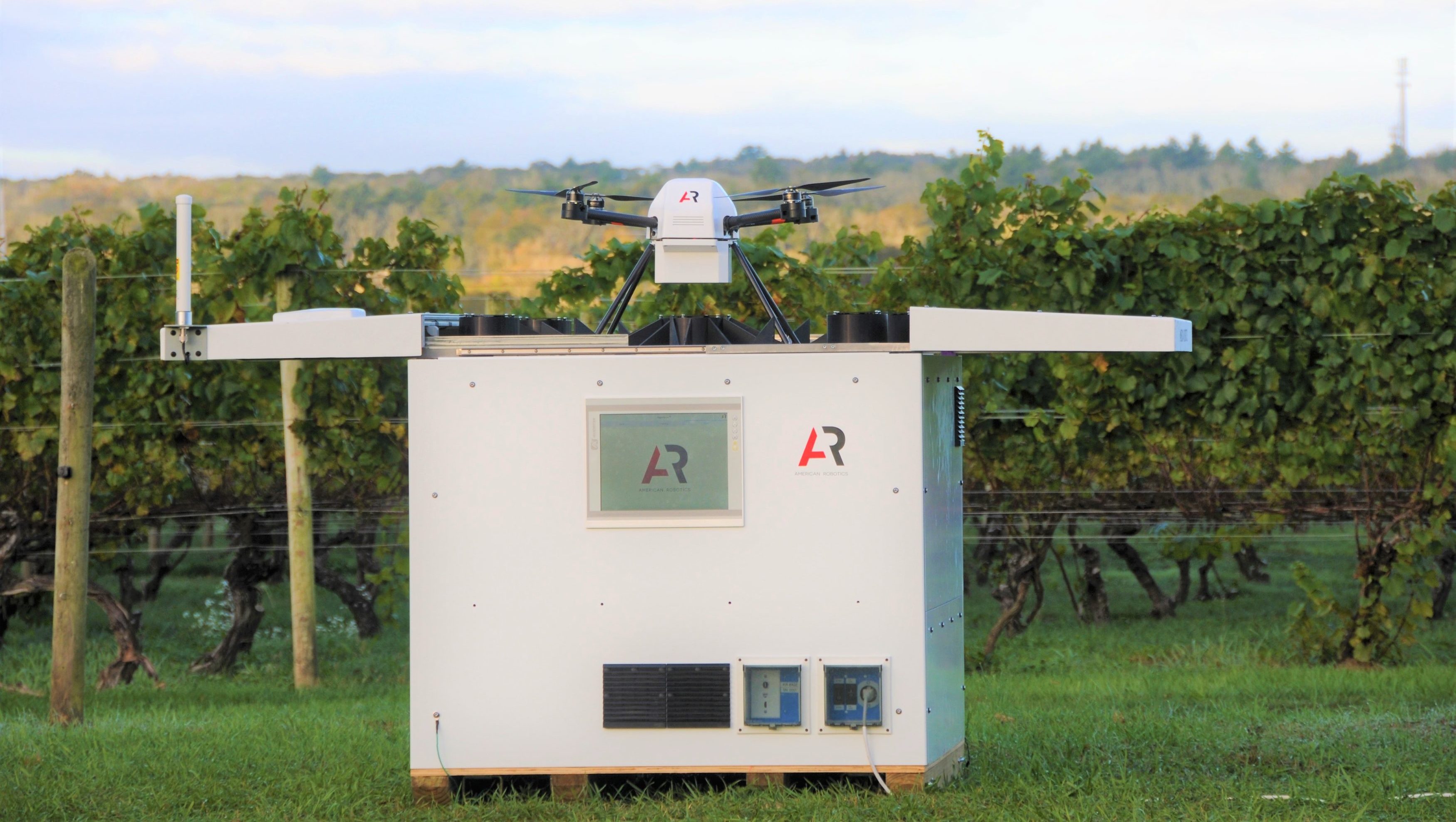American Robotics (AR), a Boston-based startup developing a fully autonomous drone for farmers, has raised a $2 million second seed round from investors close to home.
Investors in this round were identical to those particpating in the company’s $ 1.1 seed round last year, including Brain Robotics Capital, a fund focused on AI, robotics, and IoT, and unnamed angel investors.
CEO Reese Mozer calls its drone system, Scout, the first “practical” drone system. Flights for Scout can be planned and scheduled from a computer. The drone itself, of AR’s own design, is kept in a box in the field that resembles a large beehive, where the drone charges when not in use. When it’s time for a mission, the top of the box slides open and the drone takes off to photograph pre-programmed fields. The drone then lands back on the base station, charges, and uploads data to a cloud-based system without human interference.
Fully autonomous drones are increasingly in demand from growers who, after experimenting with the drones currently marketed for agriculture, find that the cost of operating drones often outweighs the value of the information they deliver.
Mozer said that his system, which will be sold as a service with no upfront purchase of hardware, is cheaper than current alternatives when labor is factored in.
“When you do that math and you talk to people and you pilot a manual drone for yourself it becomes pretty obvious that it is a full-time job,” he said.
Scout units, once released, will be able to cover about 1000 acres per day and depending on how frequently a grower wants every one of his acres covered will determine how many units are required, said Mozer. The drone can fly about ten miles between charges making the effective radius about five miles.
Mozer told AgFunderNews that the decision to raise a second seed round followed an overwhelming response from growers when the company released a video of Scout in 2017. The new funding will allow the startup to add both engineering and sales staff to its team.
In 2018, AR will hold extended trials for a select group of growers in two or three regions of the US followed by a commercial launch.
Regulation is still an issue however as currently, in the US, drones must be flown in the line of sight of a human operator, which lessens the value of autonomy, especially on very large operations or noncontiguous farms, but Mozer is confident that regulation will not be an issue for his company’s growth.
“It’s a bit of a misconception that we’re just waiting on the [Federal Aviation Administration (FAA)] to just change their regulations. We know what they want us to achieve and that’s safe flight and that’s a technical issue. We’re working with our partners to achieve that.” said Mozer, who explained that the FAA grants waivers for individual operators and individual technology on an ad hoc basis.
‘It’s a central focus of this company and we’re confident that we will have a solution soon,” said Mozer.





